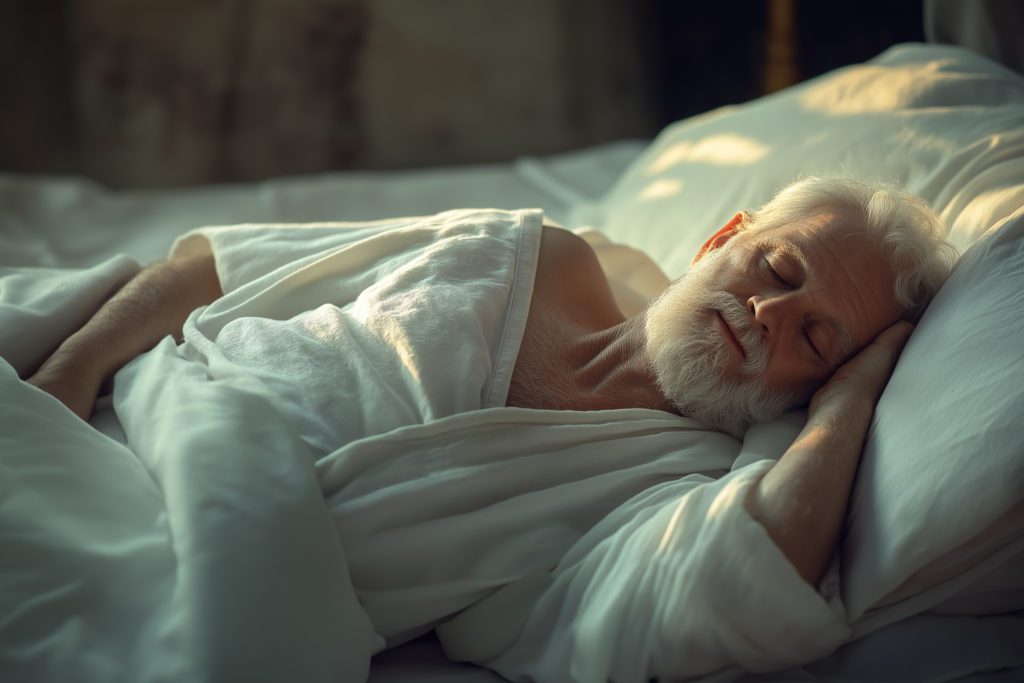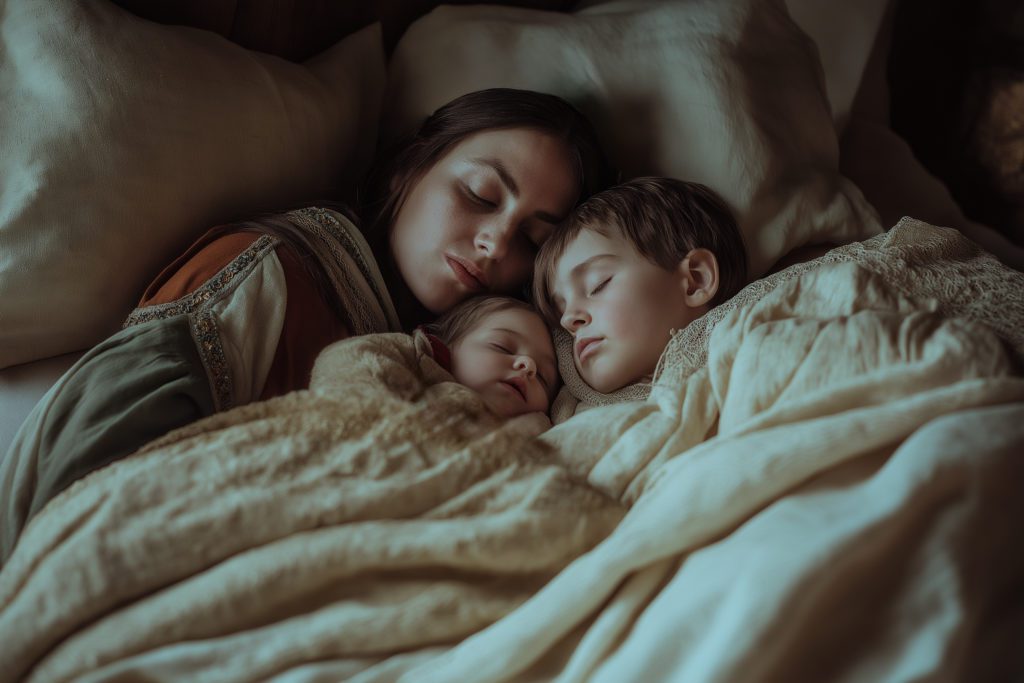
The Strangest Sleep Habits of Famous People
Celebrities are a topic of fascination for many. Learn about the strange sleephabits of the famous and their interesting sleep hacks.

Getting a good night's sleep is important for maintaining physical and emotional well-being. Your sleep quality also affects your work and academic performance. However, many celebrities swear by peculiar sleeping habits that help them stay focused and alert throughout their workday. Here, we'll take a closer look at some of the strangest sleep routines of the rich and famous.
Winston Churchill
Winston Churchill's unusual sleep habits included a five-hour block of rest per night with a two-hour nap in the afternoons. Churchill famously claimed that this sleep routine allowed him to get "at least a day and a half" worth of work accomplished within 24 hours. Seeing that he successfully led Britain through its darkest hours in World War II, his routine seemed to work well for him.
Leonardo Da Vinci
Instead of going to bed at night, Leonardo Da Vinci would spread out his sleep throughout the day, incorporating 20-minute naps throughout 24 hours. This is called polyphasic sleep, and proponents claim it allows ample rest while maximizing productivity levels. However, many people who attempt polyphasic sleep end up experiencing adverse physical and mental health outcomes.
Marissa Mayer
Marissa Mayer, former CEO of Yahoo, claimed to work up to 130 hours per week, pulling all-nighters and occasionally taking short naps to recharge. She also tries to compensate for her lack of sleep by taking quarterly vacations to unplug and sleep in. While this routine may work for her, it's impossible to completely make up for lost sleep. Over time, chronic sleep deprivation may lead to serious physical and mental health conditions, including obesity, diabetes, hypertension and anxiety.
Tom Cruise
Tom Cruise admits that his snoring is so loud that it has kept his partner up at night. To deal with this, he sleeps in a small, dark, soundproof room called a "snoratorium," allowing his spouse to get some much-needed shut-eye. While this arrangement seems to be the best solution for Cruise and his spouse to get some rest, snoring can be indicative of a more serious problem like sleep apnea. If left untreated, sleep apnea can increase the risk of heart disease, hypertension and other health issues.
Michael Phelps
Michael Phelps once claimed to sleep in an altitude chamber with oxygen levels similar to that at 8,500 feet above sea level. He's not the only athlete to use such a contraption while they sleep. An altitude chamber can be helpful for athletes who train and live at sea level but complete in high-altitude locations. Sleeping in an altitude chamber may help produce more blood cells, increasing the delivery of oxygen to the muscles. This increased oxygenation can enhance athletic performance.
Charles Dickens
Charles Dickens dealt with insomnia throughout his life. To find some relief, he was known to sleep facing north. In fact, when he traveled, he would bring along a compass to help him reposition his bed, with his head in the south position and his toes pointing north. There is minimal research on this topic to support his claims that sleeping north alleviates insomnia. Some research indicates that resting cattle and deer may align themselves in a north-south direction along the field lines of the Earth's magnetic field. However, the idea that sleeping direction affects sleep quality in humans is a myth.
Eminem
While studies show that sleeping in a completely darkened room can enhance sleep duration and quality, rapper Eminem takes this concept to the extreme. In addition to blackout curtains, he also wraps tinfoil around his windows and listens to a white noise machine. While blackout curtains and a white noise machine can be helpful for creating a healthy sleep setting, the tinfoil may not do much more than provide a placebo effect.
Steven King
Stephen King's bedtime routine consists of brushing his teeth, washing his hands and pointing his pillows in a particular direction before he can settle in. "The pillows are supposed to be pointed in a certain way," he stated once in an interview. While he prefers the open side of his pillowcases to be pointed towards the opposite side, this may be more out of habit than in the name of scientifically backed research.
Mariah Carey
Mariah Carey has one of the most extreme routines on this list, as she claims to need 15 hours of sleep every night in order to sing the way she wants to sing. Her bed is also surrounded by 20 humidifiers, and she compares it to sleeping in a steam room. Sleeping with a humidifier can be beneficial and improve sleep quality while hydrating the skin and soothing a sore throat. However, over-humidification can promote mold growth, which may lead to respiratory illness.
Nikola Tesla
While most people would quickly suffer from the effects of sleep deprivation if they only received two hours of sleep a night, this habit didn't seem to bother Nikola Tesla's innovative spirit. However, there is some speculation that his work and sleeping habits may have been what drove him to a mental breakdown at the age of 25. Polyphasic sleep does not work for most people and may lead to significantly adverse psychological outcomes.
Martha Stewart
Martha Stewart built her empire and wealth by functioning on only three hours of sleep per night. This routine started early in her career when she began her catering business from home, and she hasn't slowed down since then. She often starts her days at 4 a.m. by working out and catching up on the news. While some people like Martha Stewart can function on little sleep, it is medically rare and not advisable.
When it comes to getting a good night's rest, it seems like everyone has their own set of tips and tricks, and these strange sleep habits of the famous are a good example. If you're thinking about making some changes in your sleep habits, try tracking your sleep using Pillow.

Written by
Emily Mendez
Emily Mendez is a former therapist and mental health author. She is one of the leading voices in mental health. Emily's writing has appeared in eCounseling, SonderMind, and more. Emily is frequently interviewed by Healthline, Fatherly, INSIDER, Family Circle, and other national media for her advice and expert opinion on the latest mental health topics.
Download Pillow
Get help
Press & News
Legal
Connect
X (Twitter)
Company
Copyright © Neybox Digital Ltd.



